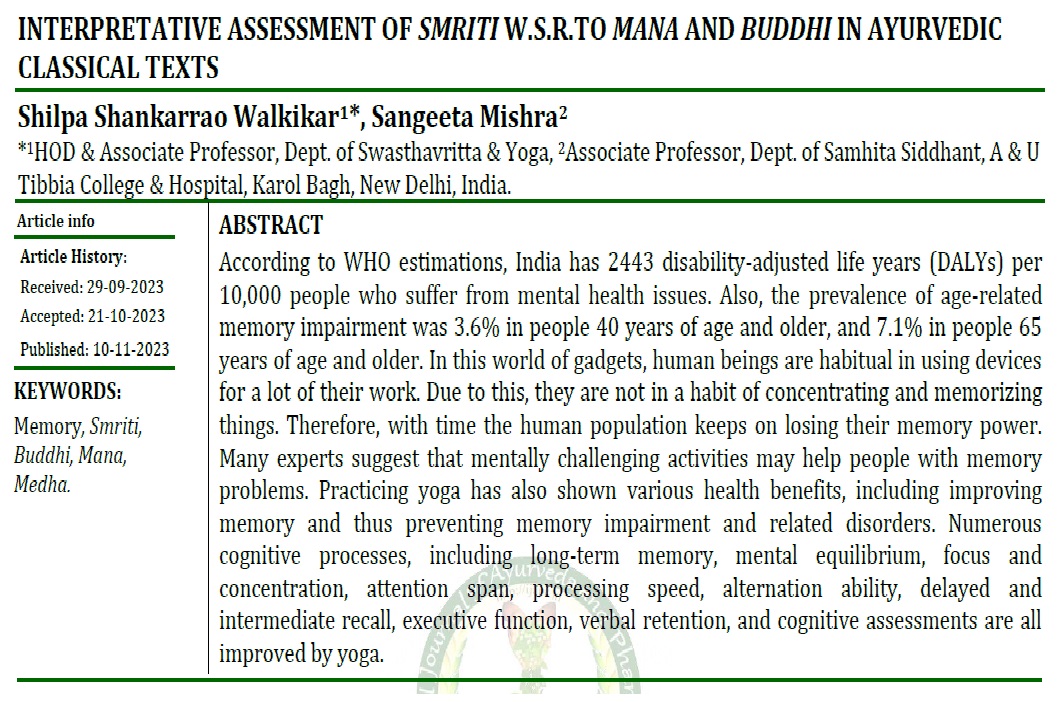Interpretative Assessment of Smriti w.s.r.to Mana and Buddhi in Ayurvedic Classical Texts
Abstract
According to WHO estimations, India has 2443 disability-adjusted life years (DALYs) per 10,000 people who suffer from mental health issues. Also, the prevalence of age-related memory impairment was 3.6% in people 40 years of age and older, and 7.1% in people 65 years of age and older. In this world of gadgets, human beings are habitual in using devices for a lot of their work. Due to this, they are not in a habit of concentrating and memorizing things. Therefore, with time the human population keeps on losing their memory power. Many experts suggest that mentally challenging activities may help people with memory problems. Practicing yoga has also shown various health benefits, including improving memory and thus preventing memory impairment and related disorders. Numerous cognitive processes, including long-term memory, mental equilibrium, focus and concentration, attention span, processing speed, alternation ability, delayed and intermediate recall, executive function, verbal retention, and cognitive assessments are all improved by yoga.
Downloads

Copyright (c) 2023 International Journal of Ayurveda and Pharma Research

This work is licensed under a Creative Commons Attribution-NonCommercial-ShareAlike 4.0 International License.






